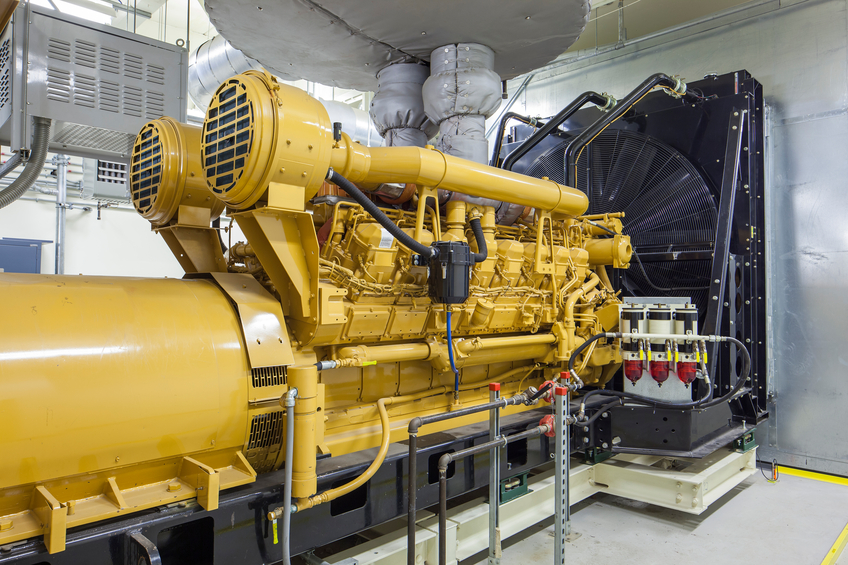Pennsylvania Energy Efficiency and Ethics 24 PDH Discount Package 1
Improving Motor and Drive System Performance (E06-006)
Decarbonizing HVAC and Water Heating in Commercial Buildings (M01-025)
Home Energy Savings: A Practical Approach (M09-001)
Water Efficiency Management Guide for Mechanical Systems (M02-055)
Engineering Ethics for Pennsylvania Professional Engineers (PA2-001)

This online engineering PDH course provides an overview of the different types of renewable energy systems and their benefits.
Renewable energy is energy produced from sources like the sun and wind that are naturally replenished and do not run out. It can be used for electricity generation, space and water heating and cooling, and transportation. Non-renewable energy, in contrast, comes from finite sources that could get used up, such as fossil fuels like coal and oil. The advantages of renewable energy are numerous and affect the economy, environment, national security, and human health. The United States is a resource-rich country with abundant renewable energy resources. Renewable energy generates about 20% of all U.S. electricity, and that percentage continues to grow.
This 4 PDH online course is applicable to energy engineers and other professionals who are interested in learning more about different renewable energy systems and their benefits.
This PE continuing education course is intended to provide you with the following specific knowledge and skills:
- Familiarizing with the benefits of renewable energy
- Understanding the different types of renewable energy
- Learning the current state of renewable energy in the U.S.
- Gaining an overview of how each type of renewable energy works
Upon successful completion of the quiz, print your Certificate of Completion instantly. (Note: if you are paying by check or money order, you will be able to print it after we receive your payment.) For your convenience, we will also email it to you. Please note that you can log in to your account at any time to access and print your Certificate of Completion.

This online PDH course presents the basics of motor and drive systems and briefly describes important terms, relationships, and system design considerations. It also provides a roadmap for finding opportunities to improve motor performance, as well as exploring the economics of motor systems.
Electric motors, taken together, make up the single largest end use of electricity in the United States. In the U.S. manufacturing sector, electric motors used for machine drives such as pumps, conveyors, compressors, fans, mixers, grinders, and other materials handling or processing equipment account for about 54% of electricity consumption.
To achieve cost-effective operation and maintenance of a motor and drive system, operators must pay attention to the entire system as well as to its individual components. Often, when investigating efficiency opportunities, operators are so focused on the immediate demands of this equipment that they overlook the bigger picture, which includes the ways in which system parameters affect all the equipment.
This 6 PDH online course is intended for electrical and mechanical engineers, contractors, manufacturers, building professionals and others interested in learning more about improving motor and drive system performance.
This PE continuing education course is intended to provide you with the following specific knowledge and skills:
- Detecting the indications of a poor system design
- Learning about the different types of electric motors
- Understanding motor operating characteristics
- Selecting motors and drives for their corresponding applications
- Understanding load duty cycles
- Familiarizing with common motor selection problems
- Understanding the framework for addressing seven efficiency opportunities
- Familiarizing with the steps that could be considered to improve motor performance
- Gaining a basic understanding of the economic considerations of motor systems
Upon successful completion of the quiz, print your Certificate of Completion instantly. (Note: if you are paying by check or money order, you will be able to print it after we receive your payment.) For your convenience, we will also email it to you. Please note that you can log in to your account at any time to access and print your Certificate of Completion.

This online engineering PDH course presents the technical, economic, and feasibility assessment for converting to all-electric heating solutions.
Electrification of building loads presents a significant opportunity to reduce site-level greenhouse gas (GHG) emissions, especially when combined with renewable and zero-carbon electricity resources. Electrification involves the conversion of a building system that would traditionally use fossil fuels (such as, natural gas, fuel oil, or propane) to the use of electrical power, which could be a key strategy in decarbonization. The course focuses on electrification and decarbonization of space heating and water heating loads using electric heat pump systems.
This 1 PDH online course is applicable to mechanical, energy, and facility engineers as well as other technical professionals interested in learning about electrification and decarbonization of space and water heating loads using electric heat pump systems.
This PE continuing education course is intended to provide you with the following specific knowledge and skills:
- Familiarizing with electrification options for HVAC and water heating
- Understanding the evaluation checklist for electrification assessment
- Learning some case studies that focus on heating electrification and decarbonization of commercial buildings
- Knowing the industry transition to low-GWP refrigerants
Upon successful completion of the quiz, print your Certificate of Completion instantly. (Note: if you are paying by check or money order, you will be able to print it after we receive your payment.) For your convenience, we will also email it to you. Please note that you can log in to your account at any time to access and print your Certificate of Completion.

This online engineering PDH course provides information on a wide variety of energy-related topics, ranging from simple weatherization, insulation, heating and cooling system improvements in homes, to installing and maintaining efficient water heaters, home appliances and solar panels.
Every year, a typical family in the United States spends around half of its home energy budget on heating and cooling. Unfortunately, many of those dollars are often wasted, because conditioned air escapes through leaky ceilings, walls and foundations, or flows through inadequately insulated attics, pipes, exterior walls and basements. In addition, many appliances, heating systems and air conditioners aren’t properly maintained, are old and inefficient, compared to models being sold today.
By properly maintaining your existing heating and cooling equipment (or replacing aging units with high-efficiency models), addressing weatherization and insulation issues at your house and getting into the habit of using energy efficiently all the time, you can save 10 to 30 percent (or more) on your utility bills every year. You will also help reduce pollution at utility plants that use fossil fuels to generate electricity.
This 9 PDH online course is applicable to electrical and mechanical engineers as well as energy specialists who are interested in learning more about home energy-saving considerations and the collection of systems that work together to achieve peak energy savings and to increase a home’s overall comfort.
This PE continuing education course is intended to provide you with the following specific knowledge and skills:
- Familiarizing with the major sources of air leaks and energy use in a typical home
- Learning about different sealing and insulating materials, their main characteristics and applications
- Understanding the energy saving considerations for heating and cooling systems
- Learning about a set of energy-related units, ratios and terminologies
- Learning about water heating systems and the different approaches to lowering water-heating costs
- Familiarizing with energy-efficient tips and practices for major home appliances
- Familiarizing with the building blocks of solar PV systems
- Gaining a general overview of contracts, installation, maintenance and monitoring of solar energy systems
Upon successful completion of the quiz, print your Certificate of Completion instantly. (Note: if you are paying by check or money order, you will be able to print it after we receive your payment.) For your convenience, we will also email it to you. Please note that you can log in to your account at any time to access and print your Certificate of Completion.

This online engineering PDH course presents guidelines on how to reduce mechanical system water use in residential buildings. Mechanical systems are frequently utilized to provide heating and cooling for residential properties. They typically fall into two categories: centralized and decentralized systems.
Centralized mechanical systems provide heating and cooling from a central location, such as a mechanical room or utility penthouse. These systems are more common in mid- and high-rise multifamily properties and can include cooling towers, boilers, and steam systems, each of which uses water as the heat transfer medium. As a result, the use of water for building heating and cooling can be significant and using sound management practices is a good opportunity for water savings.
Decentralized mechanical systems treat each unit of a multifamily property as its own space, as if each unit were a stand-alone single-family residence. These systems do not typically use process water, so they are not the focus of this water efficiency management guide.
This 2 PDH online course is intended for mechanical, environmental and civil engineers, as well as other technical personnel who are interested in learning more about reducing water use in mechanical systems.
This PE continuing education course is intended to provide you with the following specific knowledge and skills:
- Understanding the basics principles behind single-pass cooling, cooling towers and boiler/steam systems
- Understanding mechanical system water use
- Familiarizing with the maintenance and best management practices
- Knowing the mechanical systems retrofit and replacement options
- Familiarizing with the water savings calculations and assumptions
Upon successful completion of the quiz, print your Certificate of Completion instantly. (Note: if you are paying by check or money order, you will be able to print it after we receive your payment.) For your convenience, we will also email it to you. Please note that you can log in to your account at any time to access and print your Certificate of Completion.

This online engineering PDH course presents the laws and rules of ethics and professional responsibility governing the practice of engineering in the State of Pennsylvania. Excerpts from Pennsylvania ACT 367 as well as Chapter 37 of the Pennsylvania Code, which relate to the rules of profession conduct, continuing education requirements, proper use of seal and other pertinent regulatory provisions are presented in this course.
Engineering ethics is (1) the study of moral issues and decisions confronting individuals and organizations involved in engineering and (2) the study of related questions about moral conduct, character, ideals and relationships of peoples and organizations involved in technological development (Martin and Schinzinger, Ethics in Engineering).
This 2 PDH online course is applicable to Pennsylvania Professional Engineers who face different situations on daily basis while practicing engineering. This course will provide moral and ethical guidance to engineers in their decision making process. Most importantly, it will provide engineers with insight on how to respect and protect their profession with utmost professionalism.
This PE continuing education course is intended to provide you with the following specific knowledge and skills:
- Overview of the laws and rules regulating to the practice of engineering in the State of Pennsylvania and their application to Professional Engineers
- Understanding the roles of the Pennsylvania Board and its disciplinary authority
- Learning about engineering ethics and the rules of professional conduct and responsibility
- Understanding the continuing education requirements, proper use of seal and more in the State of Pennsylvania
- Understanding the Pennsylvania Board disciplinary process
- Review of the disciplinary cases and along the range of violations and corresponding penalties imposed by the Pennsylvania Board
In this professional engineering CEU course, you need to review the course document titled "Engineering Ethics for Pennsylvania Professional Engineers".
Upon successful completion of the quiz, print your Certificate of Completion instantly. (Note: if you are paying by check or money order, you will be able to print it after we receive your payment.) For your convenience, we will also email it to you. Please note that you can log in to your account at any time to access and print your Certificate of Completion.